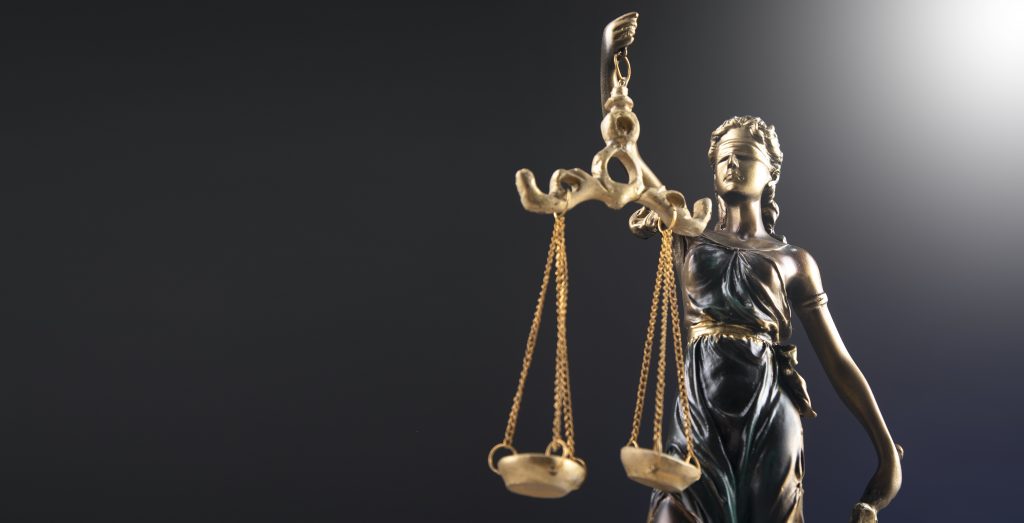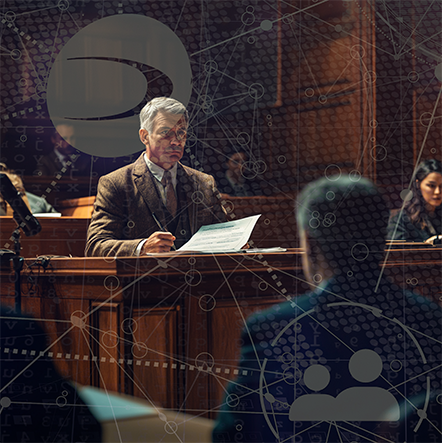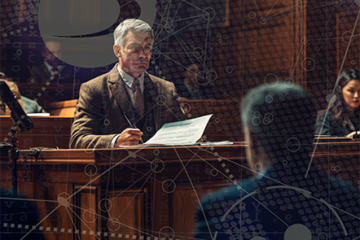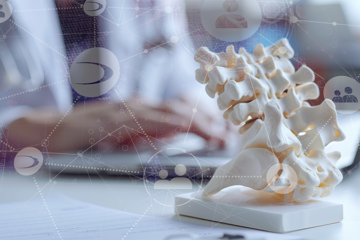Navigating the complexities of depositions can be daunting for even the most seasoned professional witnesses. Your testimony can significantly influence the outcome of a case, making it crucial to approach each deposition with thorough preparation and professionalism. Expertinfo.com connects expert witnesses with legal professionals, ensuring you are well-equipped to provide the most effective support in legal proceedings. This guide offers essential guidelines and practical examples to help you excel in your role during depositions.
1 | Understand the Legal Context
Before stepping into a deposition, thoroughly understand the legal context of the case. Familiarize yourself with the case facts, the specific questions you need to address, and the relevant legal standards. This preparation helps you provide clear, concise, and relevant information.
Example of understanding legal context
If you’re an engineering expert witness in a product liability case involving a faulty machine, review the legal definitions of negligence and product defects specific to the jurisdiction. Understand the plaintiff’s claims and the defendant’s defenses to align your testimony with the relevant legal issues.
2 | Review Your Report Thoroughly
Thoroughly review your expert report and any supporting documents. Be prepared to discuss and defend your methodologies, findings, and conclusions. Ensure consistency between your report and your deposition testimony to maintain credibility.
Example of how a medical expert might prepare
As a medical expert, you might have provided a detailed report on a patient’s injury resulting from a car accident. During the deposition, be ready to explain the diagnostic tests you conducted, the medical literature supporting your conclusions, and how your professional experience informs your opinions.
3 | Practice Clear Communication
Explain complex concepts in layperson’s terms without oversimplifying. Your goal is to be understandable without sacrificing accuracy.
Example of how an expert witness can add clarity
If you are a financial expert, simplify complex financial instruments and market behaviors. For instance, when explaining derivatives, you might say, “Derivatives are financial contracts whose value is linked to the performance of an underlying asset, like stocks or bonds.”
4 | Stay Objective and Unbiased
Provide objective, unbiased opinions based on your expertise. Avoid advocating for either party. Your credibility as an expert witness depends on your perceived impartiality and adherence to the facts and evidence.
example of remaining unbiased
As an environmental scientist, your report might indicate that natural and human factors contributed to pollution in a given area. During your deposition, emphasize that your findings are based on data and scientific analysis, regardless of which party’s case it supports.
5 | Manage Your Demeanor
Maintain a calm, composed demeanor, even if you face challenging questions or aggressive cross-examination. Avoid becoming defensive or argumentative. Your demeanor can influence how your testimony is perceived. As an expert witness, confidence is essential.
Example of remaining composed
If you are a forensic accountant being aggressively questioned about potential biases in your financial analysis, maintain a steady tone and calmly reiterate your methodology and adherence to standard accounting practices.
6 | Listen Carefully Before Answering
Listen carefully to each question before responding. If you need help understanding a question, ask for clarification. Think before you speak to ensure your answers are accurate and complete. Avoid speculation; if you don’t know an answer, it’s appropriate to say so.
Example of avoiding assumptions of clarity
If asked about specific data points in a complex statistical analysis, take a moment to review the data before answering. If you need clarification, ask, “Can you please specify which dataset you’re referring to?”
7 | Be Mindful of Non-Verbal Communication
Ensure your body language, facial expressions, and eye contact align with your verbal testimony to avoid unintended messages.
Example of non-verbal communication
While answering questions, maintain good eye contact with the attorney and avoid fidgeting or crossing your arms, which can be interpreted as defensiveness or discomfort.
8 | Know Your Limits
Stay within the scope of your expertise and acknowledge the limits of your knowledge or expertise. Overstepping can damage your credibility.
Example of clearly stating the bounds of expertise
If you’re an IT expert and asked about the psychological impacts of cyberbullying, clearly state, “My expertise is in information technology systems and security, not in psychology. I recommend consulting a psychologist for that aspect.”
9 | Coordinate with the Legal Team
Communicate effectively with the legal team that engaged your services. Understand their expectations and clarify any uncertainties beforehand. Regularly update them on your findings and any potential issues.
Example of proactive communication
Schedule a meeting with the legal team to go over your report and discuss potential questions you might face. Keep them informed about any new developments or additional data you uncover during your analysis.
10 | Document Everything
Keep detailed notes of your work and interactions related to the case. Documentation is essential for reference during your deposition. It can provide clarity and support if your testimony has discrepancies or challenges.
Example of documentation expert witnesses should keep
Maintain a log of all experiments, data collection processes, and communications with the legal team. This log can be invaluable if questions arise about the accuracy or integrity of your work.
You got this!
By following these guidelines and examples, you can enhance your effectiveness as an expert witness in depositions, provide valuable support to legal teams, and contribute to the pursuit of justice.

Are you an expert?
Your expertise makes a difference. Join a community of over 15,000 experts at Expertinfo.com. With 40 years of experience in connecting experts like you with attorneys who need your specialized skills, we’re dedicated to facilitating successful collaborations. Don’t miss the opportunity to impact critical legal cases and expand your professional network. Reach out today and become part of our extensive database of leading experts. Your expertise isn’t just needed—it’s essential. Connect with us now and start making a difference!





